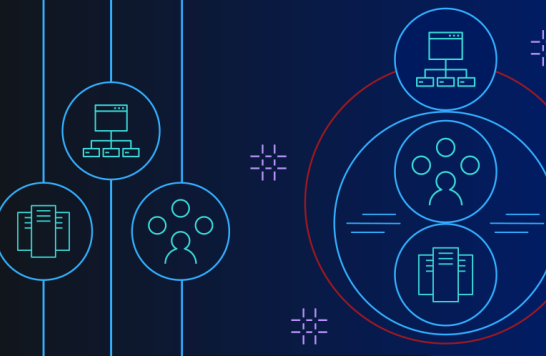Understanding Everything About Cloud Hosting Security.

Cloud Hosting is just as safe as any other methods of protecting the information in your cloud but has gotten a bad image because of other virtualized technologies in the past. Many businesses today cannot even entertain the idea of parting with their in-house ways of storing their information. However, as you accumulate more and more data, this often becomes a bigger problem as you run out of space to store all the information on physical hard drives.
However, the good news about cloud hosting is that it has gone mainstream and is more advanced and safer than it ever has been in the past.
Understanding How Cloud Hosting Works:
Cloud Hosting is a technology that has matured greatly in the last few years, and the levels of security offered to users has improved greatly. When it comes to your information and its location, your information will get secured at a specific location that the company should always provide you with when you sign up for their services. If a company does not provide you with the location of their servers, then do NOT choose to store your information with that company.
There are indeed certain cloud companies that provide better security for your information than others. You want to consider the safety of your information when you choose which cloud companies where you store your information. Consider the layers of security that are in place with the cloud system that you choose to use to store your information. However, you need to consider the following when you are choosing a cloud storage device for your information:
The Security Around the Company You Choose:
Considering the country which the company is in and the rules and regulations that they have that help protect your information. Some countries have more laws and regulations in place than others. You also always want to deploy security around your cloud no matter where you are storing your information so that you ensure that it is as safe as possible.
Understand Who Controls Access to Your Cloud:
Understanding who controls the access to your information is far more important than where the cloud is stored. You need to look at who has the opportunity to breach your cloud and what information they would get if they were able to complete the breaching of your cloud. Most data breaches will occur around finding a vulnerability, no matter whether you have cloud-based or on-premises storage for your information.
Vulnerability Testing For Your Cloud is a Must:
You must consider vulnerability testing for your cloud. No matter where your cloud gets located or how safe you think it is, you need to test to find the vulnerability. After all, vulnerabilities that you have no clue about are the ways that your data gets breached, and your information gets compromised in the first place.
When Outsourcing Your Data to a Cloud Server Consider the Following:
When you are outsourcing your data to online cloud storage or a third party, it may seem daunting at first. However, the following are key things to remember when you do outsource your information to other companies:
Understanding the Risk of Data Loss:
Most cloud providers will give you an understanding of how their system gets built so that you have transparency into how their system works and understand how your information is protected. That knowledge allows you to react appropriately and protect your company's information to the best of your ability. In this way, clouds allow you to maintain control of your information without having to manage everything yourself.
Understanding that Multi-Tenant Cloud Systems Are Just as Safe:
Many companies are under the impression that is often referred to as a "bad neighbor effect" when they believe that those servers that house multiple-tenants through the same system are less safe than those who handle just one. That's not true in most cases as there are enhanced protocols that protect each account's information such as the VM isolation. These protocols mean that your information gets securely stored in a separate space from the information of every other business's information on that same server.
Understanding that Most Attack Issues on Cloud Servers Are the Same Issues Plaguing Traditional Servers:
Many of the attacks that are taken out on the cloud regularly can also take place on regular, traditional servers such as DDoS Attacks, Data Breaches, Malware, and Data Loss. Understanding that most of the threats are present no matter what should make you feel better about trusting a third-party storage location with your company's data.
Conclusions:
In the end, no form of storing your data is 100% safe and effective, but clouds are generally just as safe as standard storing processes that require you to store your information on premises at your own, physical work location. As technology improves, these cloud technologies are only getting safer as well.
Resources
-
Strong Automation Strategy Is Key During Pandemic Recovery
As workplaces figure out their new normal, automation has a role to play – but the ad hoc implementation that happened during the COVID-19 pandemic can't continue.
-
Keeping your IBM Power Systems highly available
IBM Lab Services helps you deploy the building blocks of a next-generation IT infrastructure that empowers your business.
-
Making storage simple for containers, edge and hybrid cloud
IBM Spectrum® Fusion is a container-native software defined storage (SDS) solution that fuses IBM’s trusted general parallel file system technology (IBM Spectrum® Scale) and its leading data protection software (IBM Spectrum® Protect Plus).
-
8 reasons why IBM Power Systems is your app modernization foundation
Application modernization comes in many shapes and sizes, and it’s not always easy to know where to start. Check out the strengths and benefits that IBM Power Systems brings to your modernization efforts.
Questions?
Are you ready to make the most of IT? Schedule a call with an expert today.
Call 877-591-4015 or REQUEST A FREE CONSULTATION



